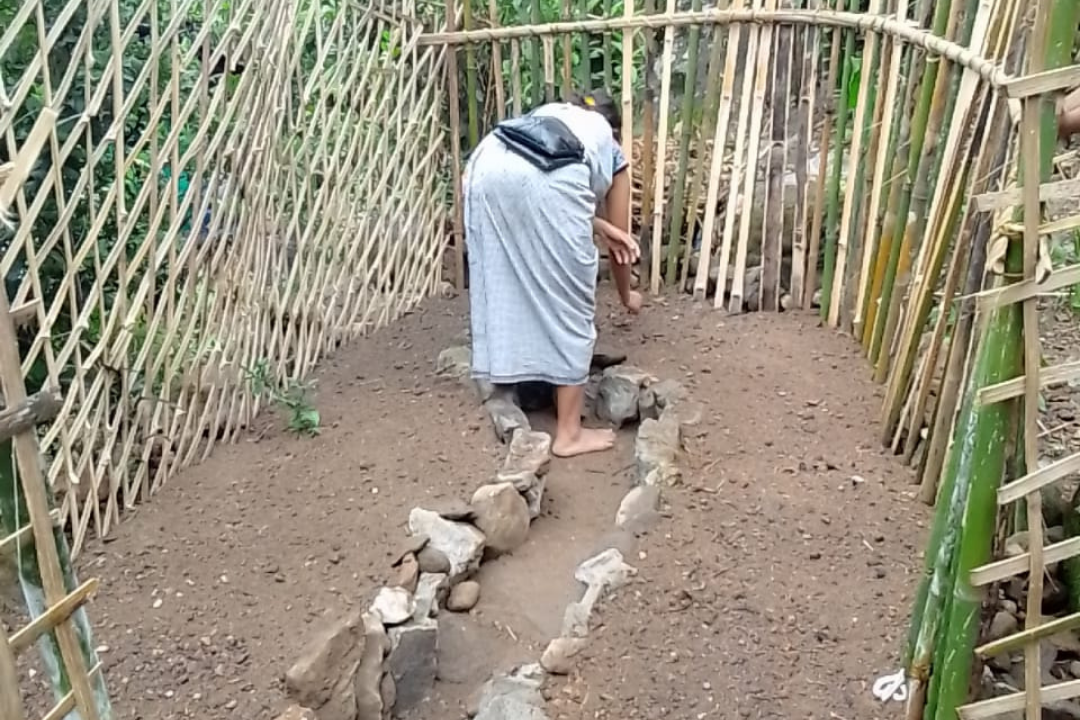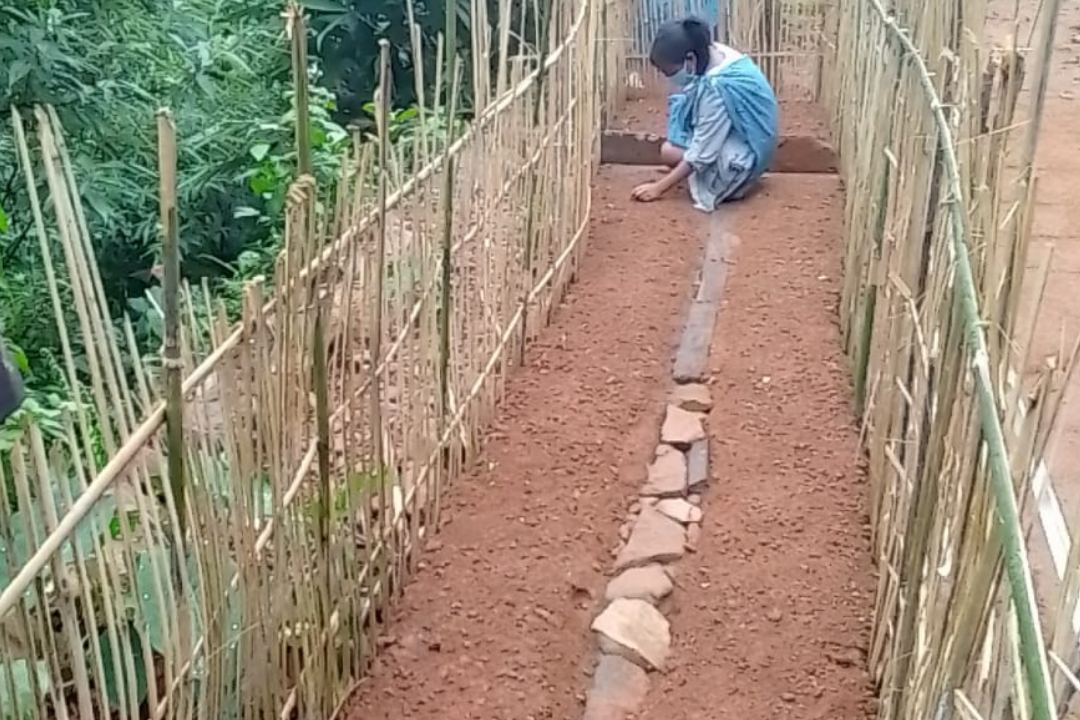Community members of Nongpriang and Umwang Nongbah had undertaken a project to increase their food crop productivity by setting out kitchen gardens at their communities. These kitchen gardens will help ease their dependence on cash crops and more so on food crops. Their journey began when they had learned the benefits of having a garden that can cater to their own needs and wants.
NESFAS had organized several awareness campaigns in Nongpriang and Umwang Nongbah on the importance of Indigenous Food Systems and to incorporate them into the community’s daily life to adapt to the local conditions and to revive indigenous food crops. NESFAS has in the past facilitated similar campaigns to promote more sustainable food systems and protect indigenous knowledge.
Nongpriang is a community located in the valleys of Sohra and falls under the Sohra Syiemship. There are 80 households in this community and most of the residents are organic farmers. Besides farming, the residents are also engaged in weaving bamboo crafts. The people of Nongpriang have currently prioritized cash crops over food crops due to the high cost of transportation of products to Sohra market and the durability of the cash crops over food crops. For that reason, the community no longer makes a livelihood from food crops as their market now depends on cash crops.
Through the facilitation and awareness campaigns of NESFAS in Nongpriang, the importance of the Indigenous Food System (IFS) was highlighted and emphasized as they provide nutritional benefits and help preserve the valuable knowledge of indigenous foods. Further, they explained the importance of including the 10 food groups in the community’s daily life, particularly for those members of the community who work under hard labor.
The community was guided by NESFAS team members Merrysha Nongrum (senior associate), Samlang Nongrum (community facilitator of the area) along with Lamphrang Shabong inspired the community through the various Youth for IFS campaigns and encouraged the community to start their own kitchen gardens. Under the leadership of Samlang, the community had set goals to fulfill this project and had achieved setting up 34 kitchen gardens in this community alone. Notwithstanding the limited space, the community members made do with their available resources by using fish boxes and sacks in place of farmland for kitchen gardens.
Samlang Nongrum, community facilitator of the area, said, “I am very pleased as a Community Facilitator when I see the villagers are cooperative in the work that I do.”
Through the encouragement and guidance of the NESFAS team members and the various youth campaigns, the community’s kitchen gardens grew from a few too many. The various crops that they now grow are french beans, peas, jaut, mustard, onions, turnip, coriander, lettuce, etc. The community now believes in the importance of the kitchen gardens as they will help sustain and improve nutrition in the community.
Lamphrang Savio Shabong, NESFAS field coordinator of the area, said, “I was very impressed when I saw tthe community members responding positively to our campaigns and cooperating with our initiatives. With the leadership of the community facilitator in the community, hopefully, more results are produced.”
Similarly, community members of Umwang Nongbah (Ri-Bhoi) have followed through the same goals in protecting local foods and diversifying the indigenous diet through various awareness campaigns. Mirian Bey, community facilitator and Anganwadi worker of Umwang Nongbah, had conducted several training programs and awareness campaigns on the roles of a nutritional diet and food security and therefore, motivated the community to diversify their diet through kitchen gardens. They have successfully harvested 30 household kitchen gardens and look forward to helping establish more kitchen gardens in the community. Bey played an important role in bringing together the community to live a more healthy and sustainable life.
As a way forward, NESFAS has provided these communities seeds — peas, french beans, jaut, and mustard which are to be planted in these kitchen gardens.
Tbit Suting, a community member from Nongpriang, said, “Having a kitchen garden will help us in two ways: vegetables for our food and food crops to sell in the market. NESFAS realizes the importance of protecting our indigenous seeds and promoting good health to the communities.”
 Translate
Translate






